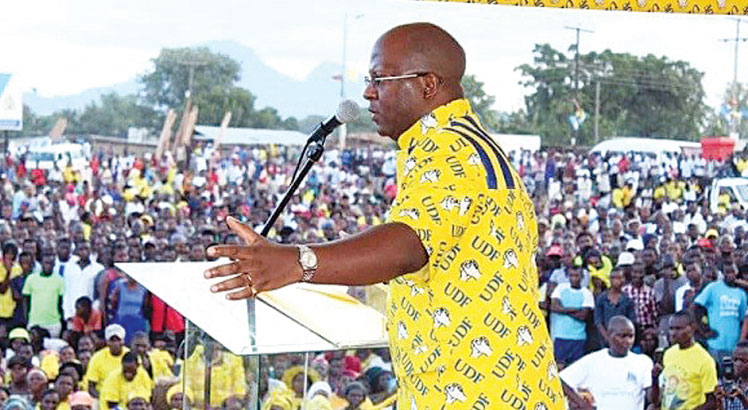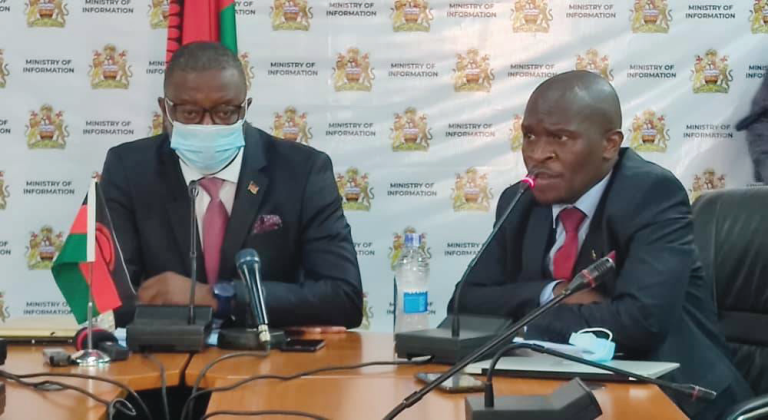The good son
It was US Vice-President Mike Pence, referencing to President Donald Trump’s daughter, Ivanka, at the Republican National Convention, who aptly captured the story of a fine political child in the limelight. “You can’t fake good kids,” Pence said.
Atupele Muluzi is one good child of a politician. He, eventually, followed daddy’s footsteps into politics. Since then, suspicion has always trailed him, especially that his every move, therein, is dictated by first, instinct to protect family interests.
“She’s the daughter [Ivanka] everyone wants,” R. Couri Hay, a publicist and long-time friend of the Trump family once told the Hufffington Post about Ivanka Trump.
Friends of the Muluzi family, one can imagine, can say the same of Atupele—family man, likeable, scandal-free.
But the senior Muluzi’s shadow casts larger in politics. He was president for a good 10 years, but left office with the country ‘poorer and freer’ than he found it in 1994, amid worsening corruption and after attempts to rape the Constitution and permit his third-term were thwarted by overwhelming public opposition. In the family, a legacy of greed stand, side by side, by honour of championing pluralism.
It is such background that defines Atupele’s politics today. Many speculate that, that is why Atupele’s genius and claim to fame, the so-called Agenda for change, has suffered. At the height of the agenda for change movement—first championed when the Bingu wa Mutharika presidency started losing direction in its second-term—Atupele just appeared like president-in-waiting.
But, somehow, when Bingu died, Atupele decided to join the Joyce Banda bandwagon, when the clearest path to State House, many a man on the street contend, was for him to remain an independent voice in opposition.
Many suggest, too, the senior Muluzi’s relations with Banda was vital in this move. When Cashgate cost JB her short-lived tenure, Atupele suffered the ripple effect—finishing a distant fourth in the 2014 presidential race.
As many on the street argue, his time in government was a betrayal to the radical voices of the millennials that had pushed his agenda for change in the first place. It has never been endorsed by his base.
For a guy as smart as Atupele appears, one then wonders; why did he immediately repeat the same trick that ended badly with JB?
Today, his presidential ambitions are suffering once more as nobody is taking him seriously. Yet, Atupele is careful enough about his legacy that his most recent statement suggests he is not ready to stake his future, sacrificing his political capital with continued alliance with DPP indefinitely.
He is looking for a way out while also hoping to get the best out of the DPP arrangement. Probably as presidential running-mate in 2019.
As an intellectual, too, he knows he stands on the wrong side of history, as well, if he allows UDF to be permanently decimated by prolonging the alliance to an extent that the party doesn’t field a presidential candidate in 2019.
Thus far, Atupele is struggling to answer the most basic question about the party’s 2019 aspirations. Will the party partner with DPP or go sole?
He is grumbling and biting his tongue, instead. Asked why he seems to be too ready to jump into working alliances with governing parties—one can add—which only serve his family’s interest and none for the greater good of UDF—Atupele’s response smacks of cherry-picking.
His attempt to spin the discourse by declaring that he “just accepted to help President Peter Mutharika” and compares his self-serving politics to a victorious Barack Obama working with vanquished party rival Hillary Clinton after the 2008 Democratic party primary comes across as shallow response to a narrative questioning how best his relations with government have strengthened the UDF.
Nandini Patel, a prominent political scientist, writing on the subject, argues that the younger Muluzi’s worldview “perfectly resonates with the African style of patronalistic personalised politics in stark contradiction with the institutionalised politics where power is personalised instead of being institutionalised in the sense that no distinction is made between the office and the person in charge of the office.”
And, there, is the puzzle, why has a bright young politician ditched principles of consensus-building and democracy at the altar of narrow interests?





